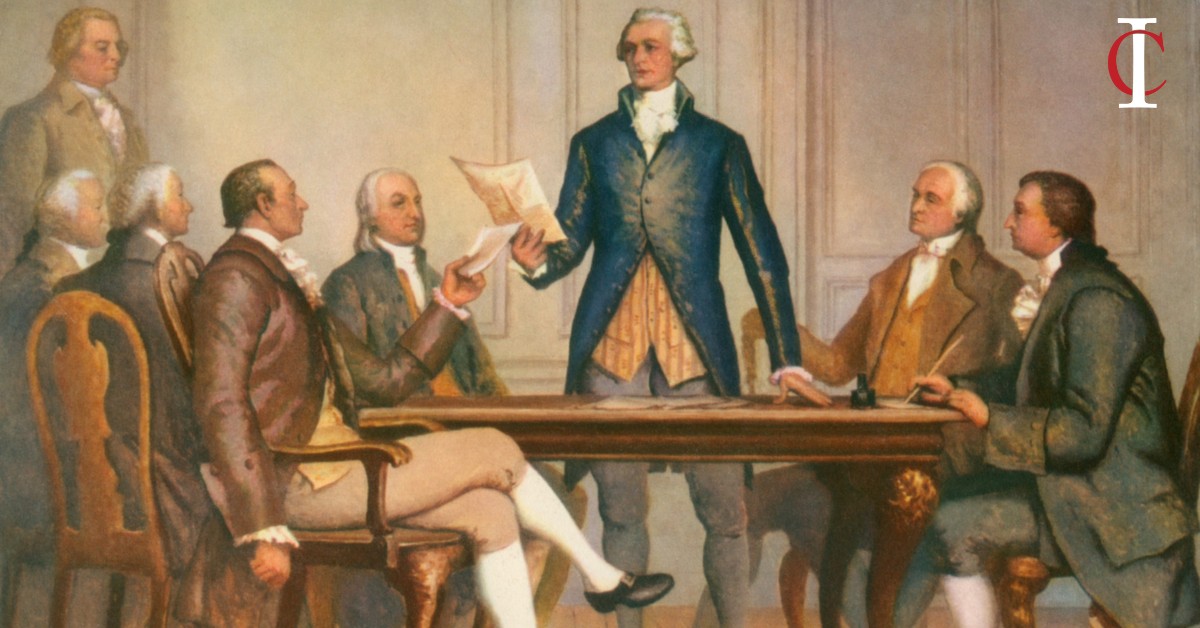
Bible in Public School Curriculums?
Please Follow Along in Your Bible…?
Legislation across the nation which includes the Bible in public school curriculums is causing alarm among those who wish to see religion banished from the classroom. States including Florida, Texas, Louisiana, and Idaho have added provisions to their standards that include things like displaying the 10 Commandments in the classroom and using biblical narrative in reading instruction.
In response to this, critics are making some hefty accusations. The buzzwords are “right-wing agenda” and “Christian Nationalism.” This hasty reaction is either underinformed or intellectually dishonest. It is no secret that some would seek to have school curricula commandeered for such ideologies, but the reality is they are a very small number of radicals.
The Truth Will Set You Free
Teachers do not have to accept or believe any of the religious traditions included in curriculum. Nor must they elevate them above any others.
Just as it is reasonable to teach the religious influences of Greece and Rome, it is also possible to teach the religious history of this nation without proselytizing.
As an example, Florida’s revised Civics and Government standards explicitly state what it is that students are supposed to understand. Here is a sample of the language teachers must use when developing instruction.
“Students will explain how the Judeo-Christian ethical ideas of justice, individual worth, personal responsibility and the rule of law influenced America’s constitutional republic.”
This is not a call to faith in any way, it’s history. Nearly one hundred percent of the founding generation were Christians. So, their faith’s ethics, beliefs, and traditions would have been of great importance. Especially when considering things like declaring independence, making new governments, and protecting religious freedom. One can find evidence of this influence in many of the founding documents, personal correspondence, and publications of the time.
The Modern Interpretation of the role of the Bible in American History
Unfortunately, a few arguments without academic integrity have taken hold in this country. They leave people thinking we can teach about the religious practices of the polytheistic societies of the ancient Aztecs but not those of the Founding.
Thomas Jefferson is a favorite of those who seek to make an argument that the United States was in no way a Christion nation. He did write this in his now famous Treaty of Tripoli, but there wasn’t a period at the end. The point of the treaty was to sort out commerce, trade, and peace between nations. The original quote reads:
“As the government of the United States of America is not in any sense founded on the Christian Religion, as it has in itself no character of enmity against the laws, religious or tranquility of Musselmen, and as the said States never have entered into any war or act of hostility against any Mehomitan nation, it is declared by the parties that no pretext arising from religious opinions shall ever produce an interruption of the harmony existing between the two countries.”
This is a reassurance to a Muslim nation that, unlike most European nations of the time, the establishment clause of the Constitution prevented the government from having a state-endorsed religion. They could rest assured that religion would not be a reason for conflict between them. Yet, people isolate and take those words out of context.
America was not “founded on the Christian Religion” as Jefferson said, but it’s more complicated than that. The Founders were quite deliberate about preventing a state-endorsed religion. The histories of Europe, replete with bloody wars over church-state relations, would have informed their thinking. So too would their faith have warned them against coupling the two, the King James Bible says to “Render to Caesar the things that are Caesar’s, and to God the things that are God’s.”
What Should Schools Do?
The reality is that the study of history is an academic endeavor. The truth is discoverable if we are willing to engage with it.
It would be wholly impractical to remove all religion from the public school system. Imagine teaching a World History class and not being able to discuss Hinduism or Buddhism. Imagine Ancient Greece with no references to the Greek Gods. It’s preposterous. It is also clear that these are not the religions that opponents want removed from the classroom.
References to the Bible are around us endlessly. They are embedded in great literature, works of art, music, and movies. How the Bible has shaped the world we live in is undeniable, whether you are a believer or not. Denying students access to that knowledge is tantamount to criminal, leaving them culturally blind in their society.
If you are like me, you may wonder why anyone would fight so voraciously to keep a factual account of religion out of the classroom. America is a society built on an ideological foundation that all men are created equal and should govern themselves. We also value freedom of conscience, all this and more brought to you by Christianity, even if you don’t believe in God. Schools should teach students a complete history of this country that is factual and intellectually honest.








